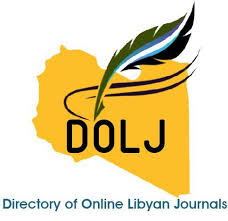Fasting and diabetic care during Ramadan in Libyan peoples with diabetes in Tripoli Diabetes Endocrine Hospital
DOI:
https://doi.org/10.54361/ljmr15.1.09Keywords:
hypo, hyperglycemia, fasting, Libya, RamdanAbstract
Background: The last epidemiological study regarding diabetes in Libya in year 2009 is estimated to reach 16.4%, This study is the up to date study regarding diabetes care during Ramadan in Tripoli. Study design: cross section study. Material and method: we interviewed 300 diabetic patient at outpatient Clinic in Tripoli Eiabetes and Endocrine Hospital for the frequency, the Incidence of complication of fasting and diabetic care during fasting Ramadan, the data was collected 4week after Eid Elifitr 1434 Hijri (2013) in structural questionnaire after a verbal consent. Collected data: coded and spss software used for analysis. Results: from total 300 Libyan diabetic patients 62% were females, 71.3% were type 2 diabetes. Mean age was 51.1±15.4 years, and mean duration of diabetes was 8.7±6.9 years, 85.3% had their HBA1C checked With last three month, mean HBA1C 8.9±3.1%,73% were complete fasted 29 days , hyper-hypoglycaemia at day time was the most commonly reported Complication especially during the 4th week of fasting, there is no significant difference between types of diabetes and gender in self monitoring of blood sugar, late sahour, preramadan education ,changes In dose of treatment(p> 0.05). Conclusion: Most of diabetic patients in Libya mange to fast during Ramadan. Recommendation: pre Ramadan diabetic education is needed to avoid the serious complication.
Downloads
References
King H, Aubert RE and Herman WH.(1998) Global burden of diabetes, prevalence, numerical estimates, and projections. Diabetes Care .9: 1414-1431,.
Holt. T , Kumar. S .(2003) ABC of diabetes. London: BMJ publishing.
Office for national statistics, (2001).
Hussanein MM, (2010)diabetes and Ramadan : how to achieve a safer fast for Muslims with diabetes . British Journal of diabetes .vascular disease, available at http:// dvd. Sage pub .com,content / 10/5/246.
Salti I, Bener JE , Detour nay B, Bianchi- Biscay M, Le Brigand C , VoinetC, etal(2004) .EPIDIAR study group, a Population-Based Study of Diabetes and Its Characteristics During the Fasting Month of Ramadan in 13 Countries Results of the Epidemiology of Diabetes and Ramadan 1422/2001 (EPIDIAR) study. Diabetic care.;27:2306-11.
Elmehdawi RR, Mukhtad NA, Allaghi NI, Elmajberi SJ. (2009) Fasting of Ramadan in peoples with diabetes in Benghazi, Libya: An exploratory study (BDEC).
Karmat MA, Syed A, Hanifw. (2010)Review of diabetes management and guidelines during Ramadan . JR Med :103:1-9.
International Meeting on Diabetes and Ramadan Recommendations: Edition of the Hassan II Foundation for Scientific and Medical Research on Ramadan. Casablanca, Morocco, FRSMR, 1995.
Downloads
Published
Issue
Section
License
Copyright (c) 2021 Aida alktounei, Rasha Bennaji, Samia A Elmiladi, Basma Almsbahi (Author)

This work is licensed under a Creative Commons Attribution-NonCommercial-NoDerivatives 4.0 International License.
Open Access Policy
Libyan journal of medical Research (LJMR).is an open journal, therefore there are no fees required for downloading any publication from the journal website by authors, readers, and institution.
The journal applies the license of CC BY (a Creative Commons Attribution 4.0 International license). This license allows authors to keep ownership f the copyright of their papers. But this license permits any user to download , print out, extract, reuse, archive, and distribute the article, so long as appropriate credit is given to the authors and the source of the work.
The license ensures that the article will be available as widely as possible and that the article can be included in any scientific archive.
Editorial Policy
The publication of an article in a peer reviewed journal is an essential model for Libyan journal of medical Research (LJMR). It is necessary to agree upon standards of expected ethical behavior for all parties involved in the act of publishing: the author, the journal editorial, the peer reviewer and the publisher.
Any manuscript or substantial parts of it, submitted to the journal must not be under consideration by any other journal. In general, the manuscript should not have already been published in any journal or other citable form, although it may have been deposited on a preprint server. Authors are required to ensure that no material submitted as part of a manuscript infringes existing copyrights, or the rights of a third party.
Authorship Policy
The manuscript authorship should be limited to those who have made a significant contribution and intellectual input to the research submitted to the journal, including design, performance, interpretation of the reported study, and writing the manuscript. All those who have made significant contributions should be listed as co-authors.
Others who have participated in certain substantive aspects of the manuscript but without intellectual input should only be recognized in the acknowledgements section of the manuscript. Also, one of the authors should be selected as the corresponding author to communicate with the journal and approve the final version of the manuscript for publication in the LJMR.
Peer-review Policy
- All the manuscripts submitted to LJMR will be subjected to the double-blinded peer-review process;
- The manuscript will be reviewed by two suitable experts in the respective subject area.
- Reports of all the reviewers will be considered while deciding on acceptance/revision or rejection of a manuscript.
- Editor-In-Chief will make the final decision, based on the reviewer’s comments.
- Editor-In-Chief can ask one or more advisory board members for their suggestions upon a manuscript, before making the final decision.
- Associate editor and review editors provide administrative support to maintain the integrity of the peer-review process.
- In case, authors challenge the editor’s negative decision with suitable arguments, the manuscript can be sent to one more reviewer and the final decision will be made based upon his recommendations.














